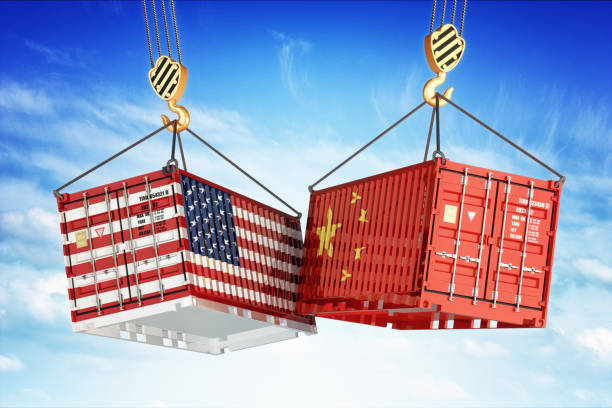Since June 2019, during the administration of former President Donald Trump, the two largest economies in the world, the United States and China, have been embroiled in a relentless trade war. This story aims to recount how we arrived at this point. The Trump administration accused China of unfair practices in the global market, asserting that the United States would no longer allow China to take advantage of other countries. In response, the US raised tariffs on imports from China.
Beijing retaliated, imposing customs duties on nearly two-thirds of American products.
As an African proverb goes, “When elephants fight, it is the grass that suffers.” Africa found itself as a collateral victim of this trade war, and the repercussions are still being felt. At the time, Dr. Getachew Begashaw, an economics professor at William Rainey Harper College in Chicago, Illinois, remarked, “Yes, this will affect economic development on the African continent. When this trade war began, the prices of basic products traded between African countries surged dramatically, and even the prices of goods imported from the United States rose. All of this impacted the African market, contributing to rising prices and inflation.”
Dr. Begashaw highlighted another impact on Africa: increasing dependence on China. The global economy, he explained, is intricately interconnected, with Africa positioned at the beginning of the supply chain—providing raw materials to China, which manufactures industrial products that are then sold to Western markets. When Chinese goods are taxed in the United States, demand falls, leading to a decline in the demand for African raw materials used in those goods.
Dr. Ismaël Buchanan, a professor at the University of Rwanda, also shared his thoughts on how African nations could mitigate the effects of such conflicts. “Africa needs to rethink its strategies, aiming to process its raw materials domestically and export finished products to China. Otherwise, Africa could be adversely affected in different ways,” said Dr. Buchanan. “It’s time for Africa to focus on self-sufficiency, even if that means a shift in relations with other countries. A win-win approach in international relations is now more necessary than ever.”
Today, more than 15,000 Chinese companies operate on the African continent, making Africa a key player once again in the dynamics of global trade. Since the post-colonial era, the continent has become more than just a bystander in global economic power struggles; it has become a critical arena where the impacts of trade conflicts like this one are felt deeply.

